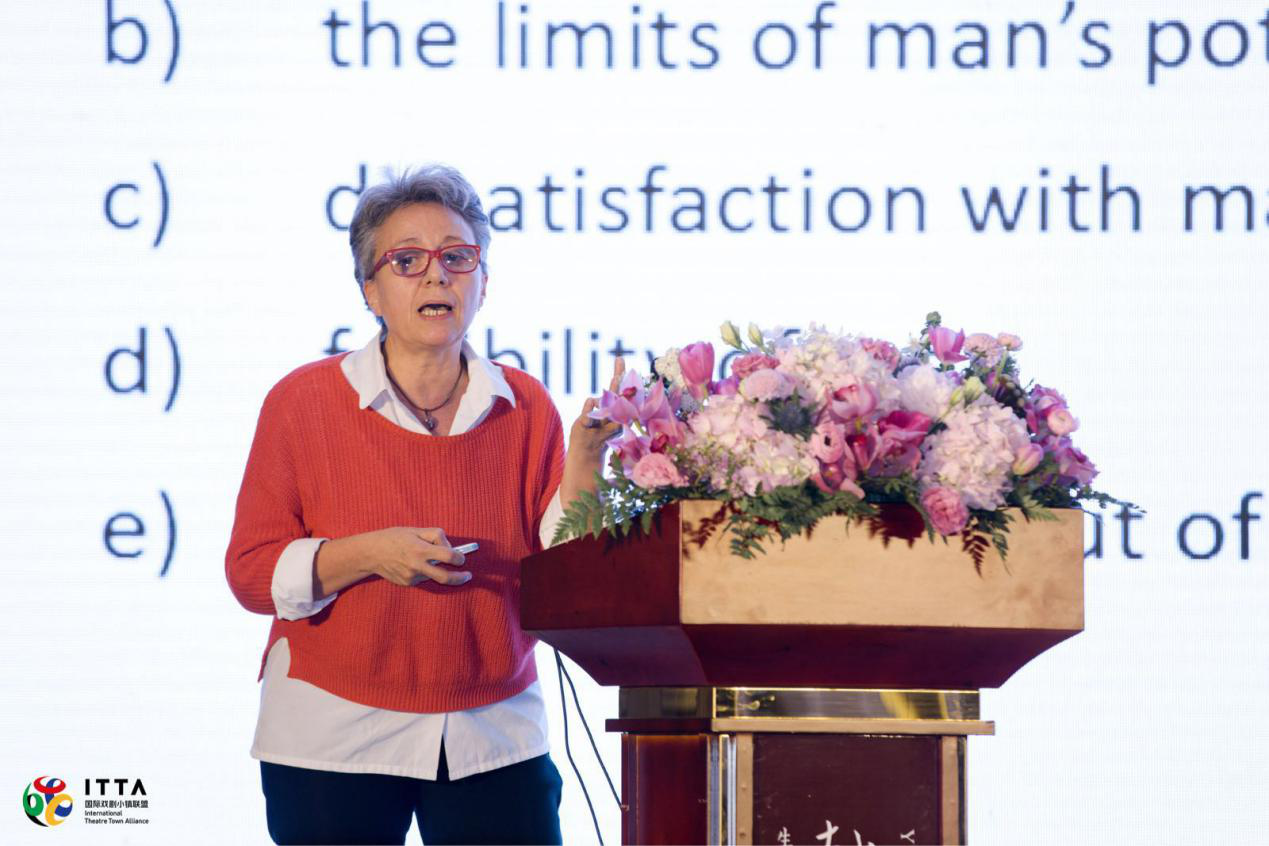ITTA Director Lisa, Director of Literature Publishing Program, Cultural Department of the Italian Embassy
《Cross-cultural drama》
Everyone comes from different cultural backgrounds. There are also cross-cultural and local cultures in drama. Is it possible to combine globalization and localization into a global localization? I want to share an interesting experiment.
A Romanian organization, the Beijing Opera Troupe of China and the young German female director Pasgen co-performed a performance, Peking Opera Faust. Faust expresses themes that are common to human beings, such as the limitations of the soul, such as the individual. These themes are shared by all people regardless of race, country or even religious beliefs. However, in the current multicultural environment, globalization is becoming more and more a reality, with the consequent risks. Whether people will pay more attention to and publicize their own culture is ignored. What about other cultures? Cross-cultural expression itself and its form of expression are becoming more and more important. Only in this way can better cultural tolerance be achieved. "Cultural inclusion" is a word I hope to popularize to you. The premise is that the selected text is "known to all on earth", and then the common story is told in different ways, and the underlying text is analyzed and deduced from the local cultural perspective.
Cross-cultural drama often has strong visual appeal, so we choose to present Faust in the form of Peking Opera directed by German directors. At the same time, we should consider how to show cultural differences in the context of globalization. The performances of cross-cultural drama are interwoven and will eventually be integrated. Just as every textile has its own texture, we need to integrate different cultures until we can make very beautiful works, or what we call woven works. Western classical scripts and Eastern forms of expression can also be practiced in small towns of Yueju Opera, and of course, Eastern stories and Western forms of expression.
It is not negligible to translate and adapt, extract the key content from the original, make necessary changes, and ensure that the effect of the original is still achieved after the completion of the modification, which is very simple. The adapter must understand the cultural background and specific content of both sides, and be not misunderstood by the target audience after the cross-cultural play.
Personally, I highly recommend Yueju Town to do this kind of work, which is more attractive to young audiences. This is true in China, Italy and all over the world. There are young audiences who are more interested in traditional theatre, but this is not because of the theme of traditional theatre, we still need to make further efforts.

Ms. Lisa Speaking at the ITTA Forum
(These contents are from the tape recordings of the speaker.)
